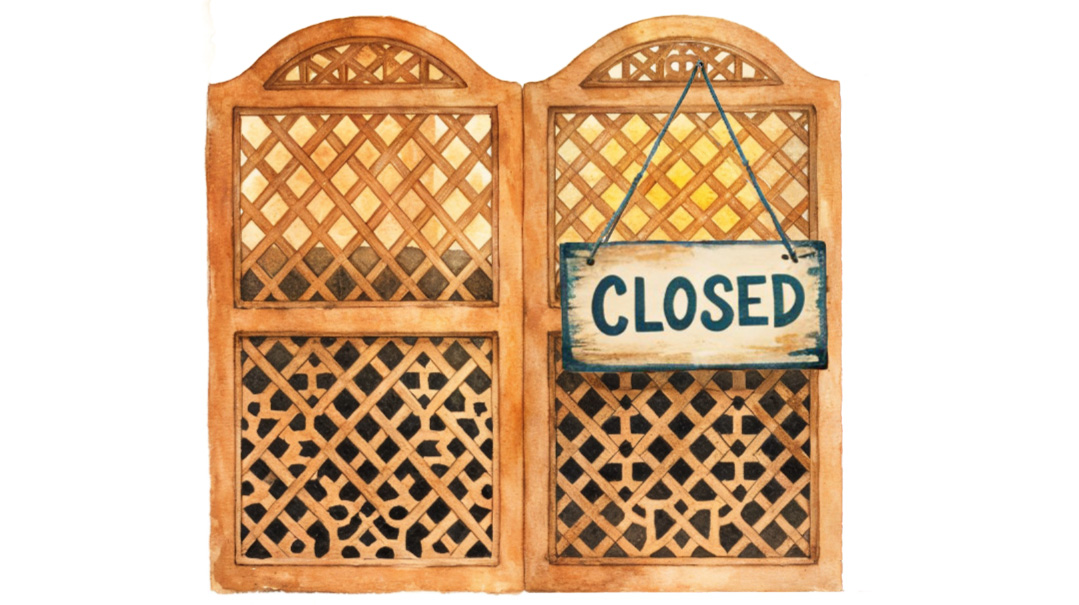Tears and Honey
| September 29, 2024We search everywhere. But the machzor is nowhere to be found

“Where did you keep it?” we ask him.
“Right here,” Dubi says, pointing to one of the lower shelves.
Everyone in our family gathers around the bookshelf, pulling out seforim and tracing the gold lettering on each spine hoping that maybe, just maybe, this one will be it….
We search everywhere. But the machzor is nowhere to be found. The clock is ticking; it’s almost time to go to shul.
IT’SRosh Hashanah eve — a picture-perfect scene. The candles are taking their first breaths, soft and glowing. The table is regal, set in maroon and gold and studded with dishes of honey. The aroma of fresh, sweet crumble challah drifts throughout the house.
The men are putting on their jackets, getting ready to head to shul. But there’s a sad little boy next to the bookshelf. Dubi, eight years old, can’t find his machzor — the one he’d spent hours and hours on in school, making bookmarks under his rebbi’s guidance.
Dubi’s eyes well up with tears. Maariv. HaMelech. Unesaneh Tokef. He spent so many bright mornings at cheder preparing for this day. He’d cut out cardstock paper, found the page numbers, penciled in the right words. Seder Tekiyos. Bircas Kohanim. Tashlich.
Suddenly, my mother claps her hand over her mouth. “I know where it is,” she says with a pang in her voice.
Fifteen-year-old Ari, in a rush on his way to yeshivah for Yom Tov, had needed a machzor. In her haste, my mother had grabbed one off the shelf and thrust it in his hands.
And now, Ari has Dubi’s bookmarks for Rosh Hashanah.
The honey is sticky and the pomegranates are sweet. But the light in my brother’s eyes has dimmed. The excitement of Rosh Hashanah, the thrill of davening with his very own machzor, has been dampened.
I call him close. I tell him how hard this is, and also how special he is. “Imagine what a commotion is going on in Shamayim! A little boy is crying,” I say. “For what reason? Because he can’t daven with his machzor on Rosh Hashanah.”
A teardrop trickles down his cheek.
“You’re not crying over a broken toy,” I continue, “or over melted ice cream. You’re crying holy tears.”
Holy tears.
Salty and sweet.
Tears, and honey.
Dip the apple in the honey….
Sticky situations.
Somehow, there must be sweetness in this, too.
Motzaei Yom Tov, Ari comes home from yeshivah. We pounce on him with excitement as the story of the missing machzor tumbles out. We ask him a million questions. “You have the machzor? When did you realize it was Dubi’s? Did you at least enjoy the bookmarks?”
Ari nods, a sheepish smile on his face. He gives Dubi a hug. “Wait,” he says, his eyes sparkling. “I want to tell you something.”
He has a captive audience. We are all still standing by the front door. He turns to look at Dubi.
“When I was the same age as you,” he says, “I had the same rebbi. I made a machzor just like yours. I worked so hard on the bookmarks. On Erev Rosh Hashanah, I walked into the living room and saw colorful paper everywhere.
“You were a toddler. You had taken my machzor from the bookshelf, pulled out all the bookmarks, and ripped them up, one by one. I’ll never forget the feeling of seeing my hard work scattered all over the floor.”
He pauses. We can see it in our minds — a giddy, innocent toddler. A masterpiece in shreds.
In this moment, the years blur into one. Third-grade Dubi meets third-grade Ari. Their twinkling eyes lock.
A slow smile spreads across Dubi’s face. “Now,” he says, “you finally got to daven with those bookmarks!”
In this moment, a little boy and a teenager realize that everything — from the tears to the honey and the missing to the found — is always picture-perfect.
(Originally featured in Family First, Issue 913)
Oops! We could not locate your form.







